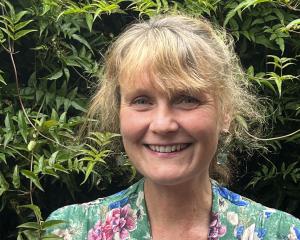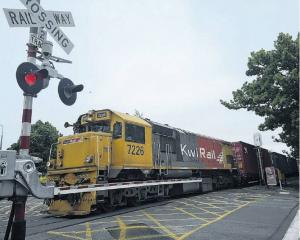
Southern police have begun deploying drones to crime scenes, but a civil liberties advocate has raised concerns over their use as a surveillance tool.
Meanwhile, a Dunedin operator has confirmed he was approached about acting as an on-call drone pilot for police, ready to launch an eye in the sky during dramatic incidents.
Responding to an Official Information Act request from the Otago Daily Times, police response and operations national manager Superintendent Chris Scahill said officers in the southern district (Otago and Southland) had deployed a drone to survey a crime scene.
"Southern district police do not hold specific file records relating to the use of RPAS [remotely piloted aircraft systems], although this type of equipment has been used on at least one occasion to assist with recording and mapping an outdoor crime scene.''
Police had also conducted trials with commercial operators and were interested in the use of drones for search and rescue, along with mapping crime scenes and road crashes, Supt Scahill said.
In 2017, police sought registrations of interest for drone services from external contractors.
The tender was eventually awarded to a panel of suppliers, including WSP Opus, which has a Dunedin office and has conducted drone inspections of the Aurora Energy network in Dunedin and Wanaka.
Also on the panel was Skybase, a Christchurch company that has been seeking to test its aerial technology at long range in Central Otago, drawing opposition from pilots.
A Dunedin drone contractor, who declined to be named, said he was approached by a third party on behalf of police about applying for the tender.
He said the police requirements in the registration of interest documents were wide-ranging.
"It referred to scenes were someone was holed up in a house and they needed support.
"I would've had to be on call 24-7.''
He declined to register because being constantly on call did not appeal.
New Zealand Council for Civil Liberties chairman Thomas Beagle said he had no issue in principle with police using drones if they were simply to replace existing photographic capabilities.
However, he drew the line at police using drones as a proactive surveillance tool.
"We have become normalised to fixed cameras ... I don't think we want drone surveillance to be normalised.
"It's quite foreboding.''
Skybase chief executive Michael Read said his company had not yet deployed on behalf of police, but hoped to do so this year.
The company has drones capable of flying far beyond an operator's line of sight and act as a "command centre in the sky'', able to supply people on the ground with internet in remote areas.
Asked whether he would be comfortable with his company's drones acting as a police surveillance tool flying over the public, Mr Read did not respond directly.
"I would ask that question to the victims of crime.''
Advertisement













